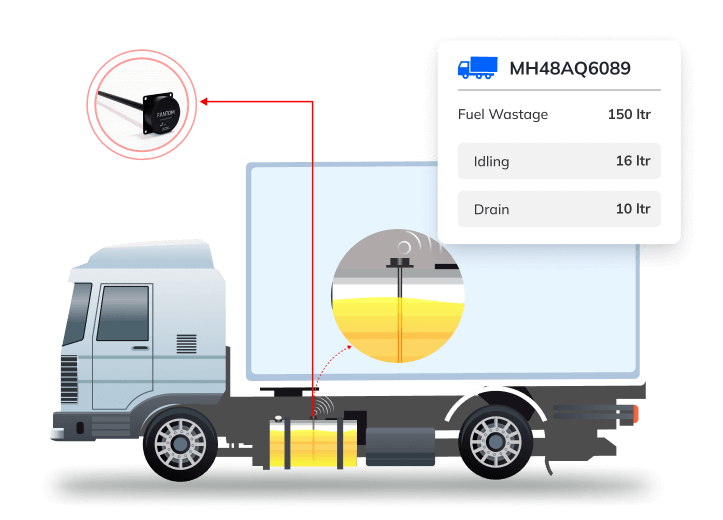In the logistics sector, managing fuel consumption efficiently is pivotal for operational excellence and cost optimization. The advent of wireless fuel sensors has been a game-changer, offering an innovative solution to the age-old challenges of fuel theft, inefficiency, and environmental impact.
Wireless Solutions to Fuel Challenges in Logistics
Introduction
Challenges
Fuel Theft and Fraud: One of the significant challenges in the logistics industry is the theft of fuel and fraudulent activities related to fuel consumption. Traditional methods of monitoring fuel levels are often inadequate in detecting or preventing such issues.
Inefficient Fuel Management: Without real-time data, managing fuel consumption efficiently is challenging. Companies often rely on estimates or delayed reports, leading to potential overconsumption or unnecessary fuel purchases.
Maintenance and Operational Costs: Manual monitoring and maintenance of fuel levels can be labor-intensive and costly. It also increases the risk of human error, affecting the overall operational efficiency.
Environmental Concerns: Excessive fuel consumption has a direct impact on the environment. Companies face increasing pressure to adopt greener practices and reduce their carbon footprint.
Challenges

Solution
Wireless fuel level sensor for logistics sector offer a comprehensive solution to these challenges:
Real-time Monitoring: These sensors allow for continuous, real-time tracking of fuel levels, enabling immediate detection of any discrepancies or sudden drops that may indicate theft or leakage.
Improved Fuel Efficiency: With accurate data on fuel consumption, reduce idle times, and implement fuel-saving strategies across their fleet.
Automated Alerts and Reports: Fleet managers receive automated alerts for low fuel levels or unusual patterns through fuel monitoring software. Detailed reports help in analyzing fuel usage trends and identifying areas for improvement.
Reduced Operational Costs: By automating fuel monitoring, companies can significantly reduce labor costs associated with manual checks and maintenance.
Environmental Sustainability: Efficient fuel management leads to reduced fuel consumption, which in turn lowers greenhouse gas emissions.

Results
Implementing wireless fuel level sensor for logistics industry has yielded significant results:
Cost Savings: Companies report substantial savings on fuel expenses due to improved efficiency and theft prevention.
Enhanced Operational Efficiency: Real-time data and automated processes lead to smoother operations, with less downtime and improved utilization of resources.
Increased Transparency and Accountability: The availability of accurate fuel consumption data fosters a culture of accountability, as drivers and managers are more aware of their impact on fuel efficiency.


